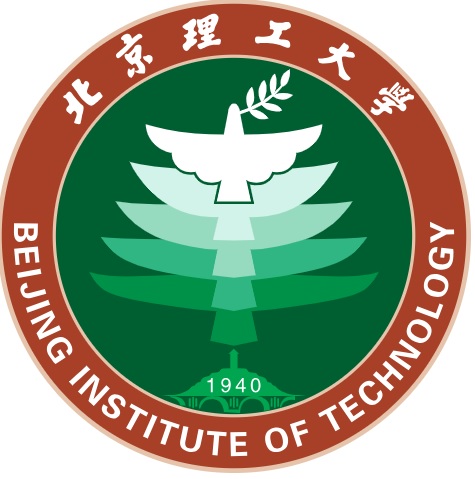Beijing Institute of Technology

Strengths
Founded in 1940, Beijing Institute of Technology (BIT) is one of the most prestigious universities in China. Ranked 9th in China in the QS Global Graduate Employability Rankings 2022, it also holds the top spot for general higher education accreditation for international students in China.
Not only renowned in science and engineering, BIT fosters balanced growth in other disciplines, notably management and the humanities, with several of its programs consistently ranked in the top 10 in China. BIT has strengthened its international reputation forming a community of global talent while continuously improving the quality of its educational offerings which are accredited by international accreditations AACSB, EQUIS, AMBA.
Its international rankings:
– 302nd by QS World University Rankings 2025,
– between 101-150th by World Universities (ARWU) 2024,
– 179th by U.S. News & World Report Best Global Universities 2024,
– 201-250 by Times Higher Education World University Rankings (THE) 2025.
Today, BIT is proud to welcome a dynamic student community of over 3,400 international students from 152 countries.
Major, Academics
The School of Management comprises 8 departments:
– Department of Management Science and Logistics
– Department of Management Engineering
– Department of Applied Economics
– Department of International Trade and Finance
– Department of Accounting
– Department of Organization and Human Resources Management
– Department of Technical Economics and Strategic Management
– Department of Marketing
You will attend courses in English:
https://isc.bit.edu.cn/docs/2023-10/cdd669a0b21b47f183fa4d613b989d94.pdf
https://isc.bit.edu.cn/docs/2021-05/7be599bed5d740fe97700e436af8252d.pdf
Campus
The Beijing Institute of Technology has three campuses: Zhongguancun, Liangxiang and Xishan.
You’ll be on the Zhongguancun Campus
To discover
Beijing is considered the political and cultural center of China, while Hong Kong, Shanghai, Guangzhou and Shenzhen dominate the economic scene.
Located close to the Great Wall, Beijing is home to famous monuments such as the Forbidden City and the Temple of Heaven, which are World Heritage Sites. You can also venture into the Hutongs, the traditional districts, as well as visit Tian’anmen Square, the Beijing Opera House and the Temple of Heaven.
Numerous architectural and structural achievements modified the city for the Summer Olympics, which it hosted in 2008.
Beijing has excellent transport links, so getting around at low cost won’t be a problem. Taxis aren’t expensive, but there’s a real risk of getting stuck in traffic jams at peak times. The best way to get around Beijing is certainly by metro. Fast, cheap and easy to use, this means of transport is widely used by locals. You can also take the bus to the places you want to visit and enjoy the scenery on the way.
Good to know
A trip to Beijing is sure to be a culture shock. As well as language, China is different from the West in many ways. The locals may come to you because they are curious about tourists, especially Westerners. In addition, the use of Google and therefore of platforms such as Facebook or YouTube is not authorized.
Water is not drinkable, so you’ll have to buy bottles or boil water.
The Chinese capital is faced with numerous environmental problems such as water and air pollution. Since the early 1990s, the government has been making greater efforts to protect the environment. It has introduced laws to encourage recycling, standardise environmental impact assessment and energy efficiency, and monitor air pollution.
What's going on?
https://onlinenewspapers.com/china.shtml
https://www.world-newspapers.com/countries/asia/china
Data are for information only.
Please visit the partner university’s website to make sure the data are up to date.
Eligibility
TOEFL score: 550
Eligibility:
ABS: 2nd, 3rd, 4th year
ESAM: 3rd, 4th year
ICD PGE
Documents required
CV (in English)
transcript,
identity document,
cover letter (in English)
additional documents may be required depending on destination.
Planning
FALL
Orientation: a few days before classes start
Classes start: early September
Classes and exams end: mid-January
SPRING
Orientation: a few days before classes start
Classes start: late February
Classes and exams end: late June
Procedures
Passport valid for six months after your return date.
Visa required.
All students must apply for a student visa (X1/X2) at the Chinese embassy or consulate in their country, with their passport, admission notice and form JW202. Any other type of visa is not accepted.
The insurance offered by the university is compulsory (approximately €50 per semester).
Accommodation
Rooms with three or four beds in the dormitories on the Zhong Guan Cun campus are available to all exchange students. The rooms are fully equipped and have Internet access, and a public laundry is available to students.
You will receive an e-mail about reserving a room after you have been admitted.
You can expect to pay from €140 for a bed in a dormitory.
For further information: https: //isc.bit.edu.cn/campuslife/accommodation/b113433.htm
Exchange students can choose to live on campus or find a flat off campus on their own.


